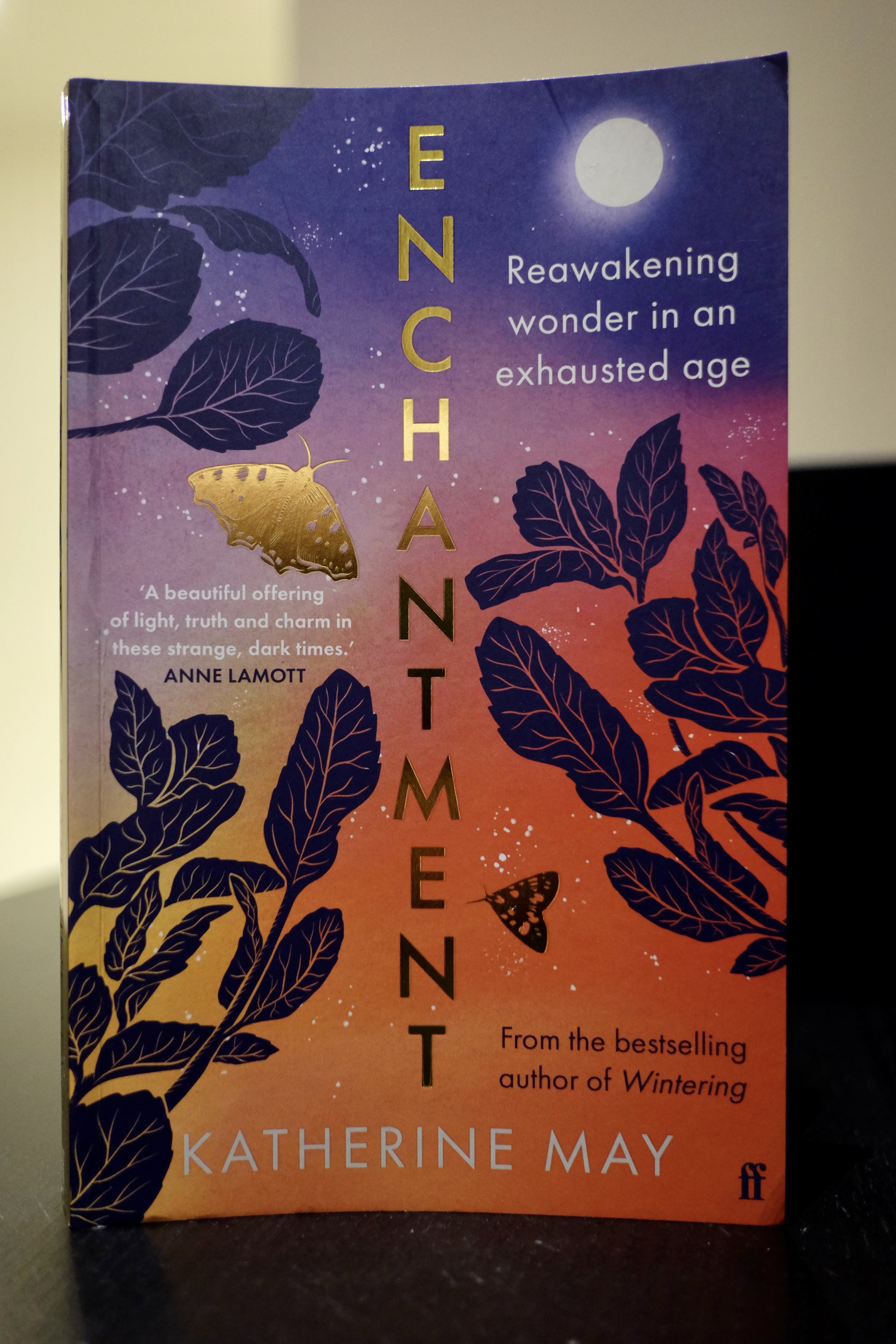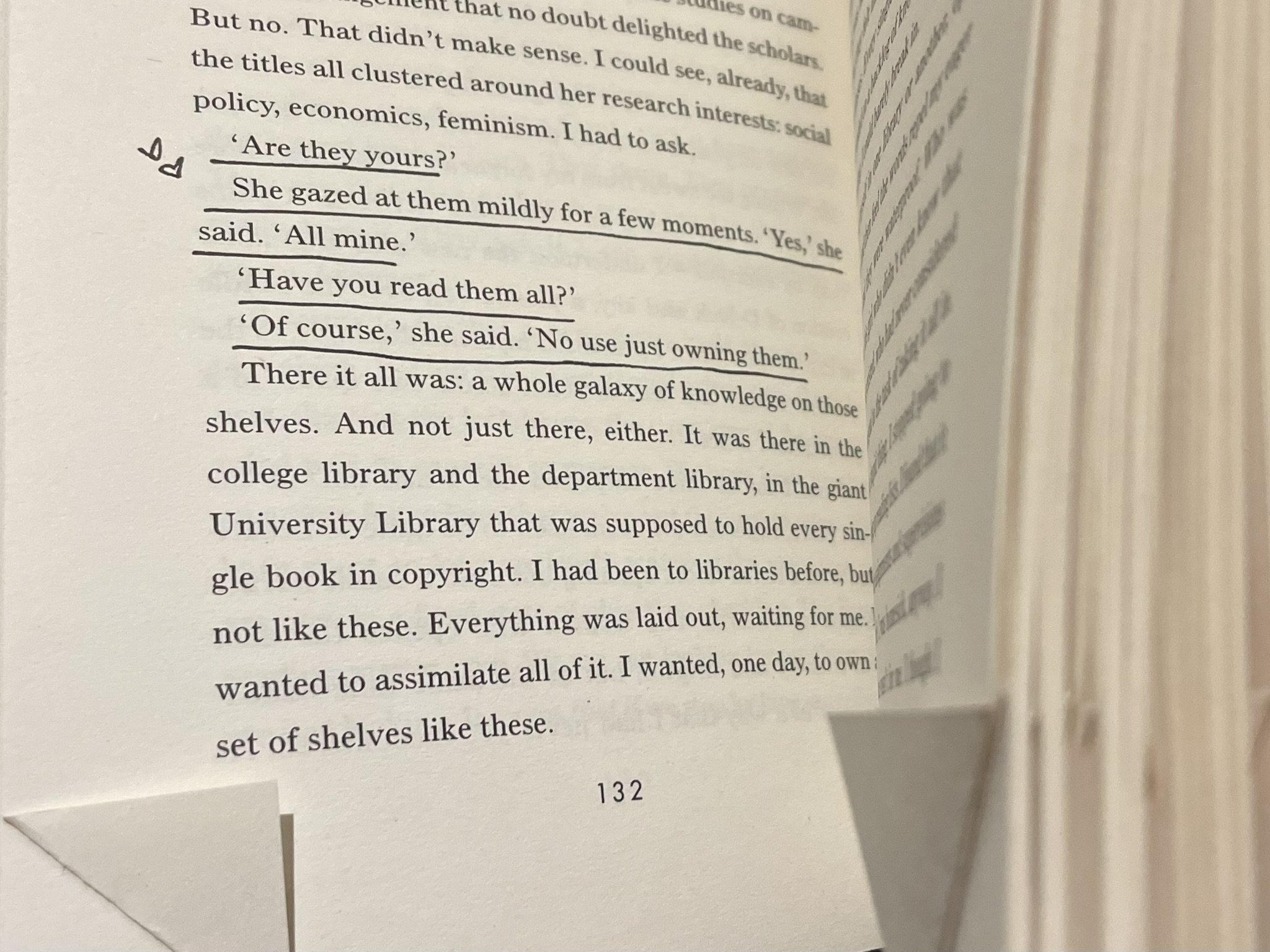"Enchantment" by KathErine May
Enchantment by Katherine May explores experiencing life in “all its sensual complexity” and finding the beauty that awaits us there. Quoting from the back cover of the book:
“It is a journey that takes her from sacred wells to wild moors, from cradling seas to starfalls. She finds nourishment and a more hopeful relationship to the world around her.”
It’s a lovely book. Some may find it a trivial read, but I love how Katherine May brings her experiences into the narrative, stitching them together with folklore, science, and poetic observations. It’s a multifaceted look at enchantment that's both academic and deeply personal. Post-pandemic—I think this resonates even more, and it’s something we all need—to find the restorative properties of the natural world and rekindle our sense of wonder.
The author has an elegance to her simplicity. Her writing is clear, relatable, and filled with a sense of wonder that makes you want to step outside and find your slice of magic. In this book are many pages with texts that resonated with me. Here’s one example when she was sent to meet her Director of Studies and saw how many books were in the room:
‘Are they yours?’
She gazed at them mildly for a few moments. ‘Yes,’ she said. ‘All mine.’
‘Have you read them all?’
‘Of course,’ she said. ‘No use just owning them.’
Taken from the chapter, Burning Books, in section 3. Fire.
The more I dived into the book, the more I can’t help but compare Enchantment with one of my favorite magazines, Bella Grace published by Stampington Company. Both share a common ethos—they celebrate the beauty of the everyday and encourage readers to find magic in the mundane.
The book is structured around the elements of earth, fire, water, and air, and it explores themes tied closely to the characteristics and symbolism of each element.
1. Earth: This section grounds us in the tangible aspects of enchantment in the natural world. Earth represents stability, growth, and nourishment. I enjoyed her stories on connecting with nature, the solid foundation of family and traditions, and the grounding effect of engaging with one’s environment.
2. Water: Water symbolizes fluidity, intuition, and healing. This section flows into discussions about the soothing, renewing quality of enchantment in life. It addresses the deep, often subconscious emotions and the cleansing power of letting go. Here’s where one of my favorite chapters is sitting: Unlearning.
I love this quote: ‘But the water is not to blame. It only shows the shape of the problem, having surged in to fill it. It is this negative space — this absence — that I need to understand.’
3. Fire: Fire is associated with passion, transformation, and energy. This section dedicated to fire delves into the sparks of creativity that ignite wonder, the warmth of human connections, and the burning desire to explore and discover. Katherine May also writes about how challenges and trials can refine and redefine one's sense of enchantment, or as she puts it, ‘deep play.’ Here also sits another of my favorite chapters: Burning Books.
I love this quote: ‘In the hour spent in my makeshift study, I learned many things: that a childhood talent does not necessarily translate into an adult one; that your craft will die if you don’t nurture it; that your most profound thoughts seem shamefully thin when they’re at risk of appearing on a page.’
4. Air: Representing freedom, intellect, and the unseen, this section lifts us to consider the lighter, more ephemeral moments of enchantment that we breathe in and out every day. It encourages us to reflect on the ideas that inspire us, the fleeting moments that bring joy, and the liberating power of unlearning to rediscover wonder.
I love this quote: ‘The problem is that air is strange to us. We do not understand its formlessness, its transparency. Its meanings pass too easily through our fingers.’
As I journey through each part of the book I welcome its invitation to reflect, find and appreciate the enchantment that permeates the natural and spiritual world.
Let this be a reminder to us: ‘If we wait passively to be enchanted, we could wait a long time.’


